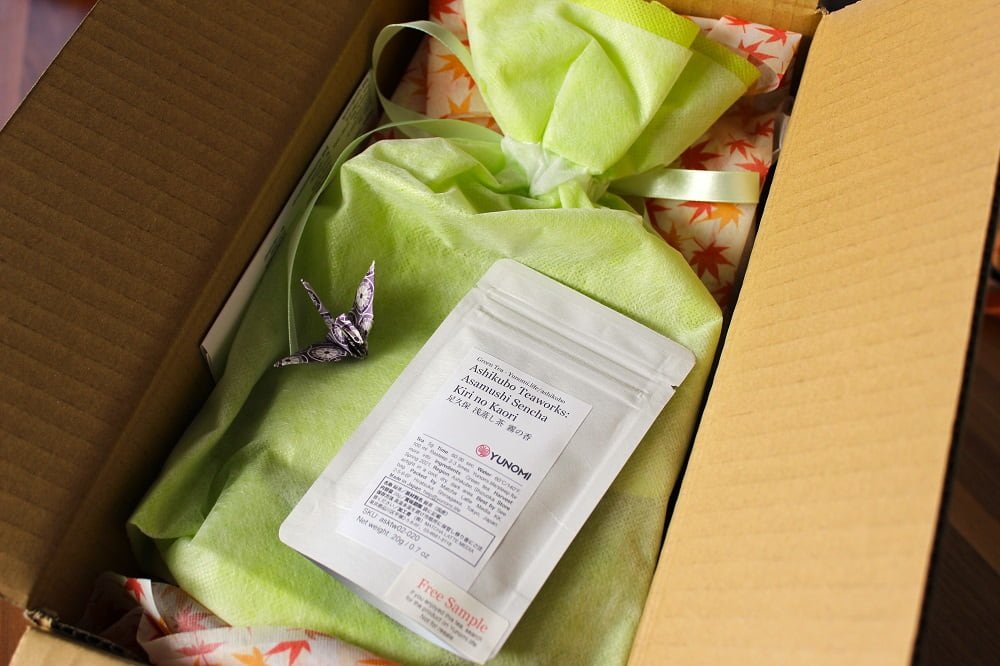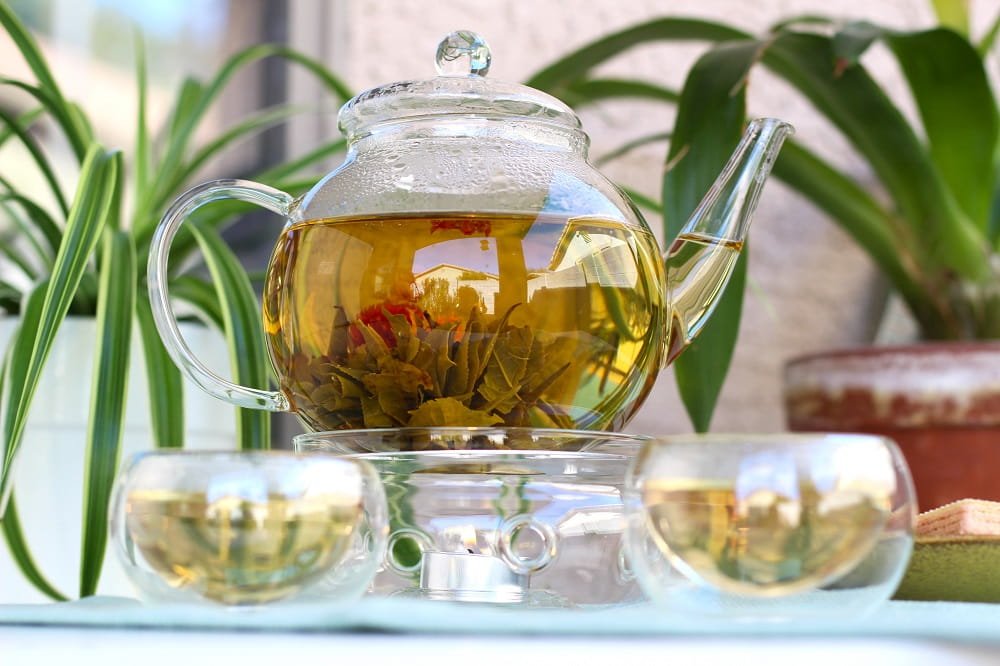[Review] Yunomi - Artisanal Japanese tea marketplace
This post contains affiliate links, which means Steeped Dreams earns a small commission if you purchase with these links or discount codes (at no cost to you). Please know all opinions in reviews on Steeped Dreams are genuine and not influenced by affiliate partnerships.
Yunomi is a Japanese tea brand that I’ve come across countless times throughout my time as a tea blogger and generally as a Japanese tea fan.
I’ve also referenced the company’s uniquely vast selection of Japanese teaware in numerous blogs, such as Choosing a Kyusu and How is Matcha Made. So by the time I connected with Yunomi’s owner Ian Chun directly, I was already fairly familiar with the company despite not yet having had the chance to taste its teas!
Yunomi boasts the world’s largest selection of Japanese tea, with rare, artisanal, niche Japanese tea types and teaware sure to make the biggest tea nerds happy. And speaking of, here is my review of several of Yunomi’s lovely tea samples (that certainly made this tea nerd happy).
Kanes Tea: 2022 First Flush Black Tea Wakocha, Makinohara-wase Single Cultivar ($5.30)
Miyazaki Sabou MY02: Kamairicha Green Tea - Minekaori Single Cultivar ($4.50)
Miyazaki Sabou MY03: Kamairicha Green Tea - Okumidori Single Cultivar ($4.50)
Chiyonoen Tea Garden: #17 Mountain-Grown Superior Genmaicha ($3.00)
Shogyokuen: Ichibancha Genmaicha Made with Premium Spring Green Tea ($3.00)
About Yunomi
In a nutshell, Yunomi is a massive marketplace that connects small, artisanal Japanese tea growers and teaware craftsmen with international customers.
Rather than white label (repacking under a single company brand) all their products from suppliers, Yunomi transparently displays each tea’s partner farm and any translated details about the specific product.
This is a fantastic site to find super niche types of Japanese tea that are hard to find elsewhere like pan-fried kamairicha or Japanese black tea, wakocha. And while the sheer variety is definitely intimidating to more casual tea drinkers and those unfamiliar with Japanese teas, Yunomi has tons of educational content and even beginner sampler packs to help get started.
Yunomi’s founding mission
Like many other niche Japanese tea companies that I feature on this blog, one of Yunomi’s founding missions is to bring more awareness and support for a prevalent issue of the Japanese tea industry.
The issue is threefold.
An aging population means most Japanese tea farmers are now elderly with fewer farmers from younger generations entering the industry. Second, the vast majority of Japanese tea stays in Japan due to logistical and linguistic barriers. And finally—with a globalized taste for bottled drinks like sodas and coffee, tea is falling out of favor with the younger folks.
Yunomi connects farmers and tea drinkers both ways, so that customer feedback gets translated and communicated back to the farmers to help them better understand their international audience.
What to love about Yunomi:
Offset carbon emissions - Working with their platform Shopify, Yunomi calculates the carbon emissions generated from shipping to each customer and offsets the amount by donating to forest projects.
Tea and teaware only otherwise available in Japan - Marketing, selling, and shipping overseas takes a ton of logistical resources that many small tea farms don’t have individually. Yunomi does all this collectively so you have access to tea and products that otherwise wouldn’t make it outside of Japan’s borders.
Marketplace style selection - Think Etsy for tea. Yunomi is a marketplace connecting countless smalls-scale tea farmers and artists in Japan with you.
Emphasis on the source - Yunomi strongly emphasizes their relationships with the tea source first and foremost, rather than putting forward pretty packaging and trendy branding that distracts from the tea’s origins and quality.
About Yunomi’s teas
Yunomi’s website has a comprehensive list of their vendors, including tea farms, factories, merchants, and teaware craftsmen. I truly appreciate how each independent tea farm also has a short description about its location, awards and special farming methods, such as whether they use organic farming. This level of transparency in the tea industry is rare.
Once again, Yunomi’s edge is the sheer depth and breadth of types of tea they stock, from sencha like gyokuro and kabusecha to unrefined tea like aracha and kukicha. You’ll also find tea blends, black tea, oolongs, and of course—matcha.
Tea fanatics will also be happy to know they can filter for specific details like cultivar, harvest season, award-winning, and region.
Have a Japanese tea type in mind? You name it and Yunomi likely has it.
Sakura flavored black tea particularly caught my attention.
Reviewing Yunomi’s wakocha black tea
For this review, I requested to sample some of the harder to find type of tea that many Japanese tea companies I’ve reviewed don’t stock.
One of these tea types that I think is vastly underrated is wakocha, or Japanese black tea. Described as “a rare cultivar grown only by a handful of farmers in Japan,” this wakocha from Kanes Tea Factory embodies the signature, slight umami hints of Japanese black tea.
Unlike more commonly consumed black tea (think Assam, Ceylon, or blend like English Breakfast) that were originally made to be robust to accommodate milk and sugar, wakocha maintains a lightness meant to be drunk on its own.
Reviewing Yunomi’s genmaicha
Next up are two genmaicha, or green tea with roasted rice:
Due to the roasted rice, genmaicha has a uniquely cozy popcorn taste that almost tricks your mind into thinking it’s having a meal. It’s also typically cheaper than pure sencha because of the rice.
Looking at the dried tea leaves side-by-side, these two genmaicha look indistinguishable. However, once steeped, I could see the blatant difference in tea leaf size. The Shogyokuen variety has much bigger leaves—or rather, the leaves were left more in-tact.
This was my first time having quality genmaicha and it was remarkable to see how apparent the umami taste is that’s absent in cheaper, mainstream brands like Maeda-en or Oi Ocha.
Reviewing Yunomi’s kamaraicha (pan-friend green tea)
Finally, I tasted two kamairicha varieties:
Miyazaki Sabou MY02: Kamairicha Green Tea - Minekaori Single Cultivar
Miyazaki Sabou MY03: Kamairicha Green Tea - Okumidori Single Cultivar
Kamairicha is one of Japan’s few pan-fried green teas, giving it a comforting roasted taste and less bitterness than other Japanese green teas. These samples also have a tinge of sweetness in both their scent and taste.
As seen in the tea samples, once steeped, the tea leaves of kamairicha are also noticeably curlier and crunchier looking than other others because of the unique processing and rolling methods.
What could be better?
My only critique of Yunomi is the fact that their biggest strength of a huge selection can be quite confusing and overwhelming for more beginner Japanese tea drinkers. For someone visiting the site for the first time to buy a gift for someone, for example, it’s difficult to know where to start.
Learn more about Yunomi on their website: yunomi.life
Tea provided by Yunomi for review.













![[Review] Firebelly Tea - Sleekly designed functional blends](https://images.squarespace-cdn.com/content/v1/6008e4b84dfdb80938cd0442/cdd4b217-3704-40dd-b11e-bc18ff413610/firebelly+tea+review.JPG)
![[Review] Harney & Sons - Paris tea and two similar blends](https://images.squarespace-cdn.com/content/v1/6008e4b84dfdb80938cd0442/5cf20e59-ce49-4fba-b9dc-16f1f43a1349/harney+tea+with+plant.JPG)


